Joining the Βι¶ΉΤΌΕΔ in 1946, Dimmock recalls the limited hours and means of post war television, and the strained relationship between the newly re-established Βι¶ΉΤΌΕΔ Television Service and management in Broadcasting House. He recalls his involvement in the first TV broadcast across the English Channel and the start of colour television.
-

John Snagge OBE
Radio announcer and television commentator John Snagge became one of the definitive voices of the Βι¶ΉΤΌΕΔ, particularly during World War II. -
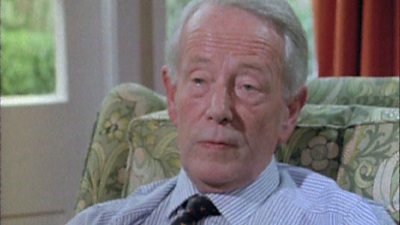
Sir James Redmond
Pioneer of early television, Engineer Sir James Redmond explores why Alexandra Palace was an ideal location. -
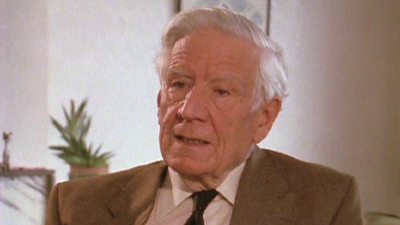
Sir Francis McLean
Former Director of Βι¶ΉΤΌΕΔ Engineering, McLean's Βι¶ΉΤΌΕΔ career started much earlier in the 1930s. -

George Campey
George Campey was a Television Publicity Officer and a Press Officer amongst many other senior roles in the Βι¶ΉΤΌΕΔ. -
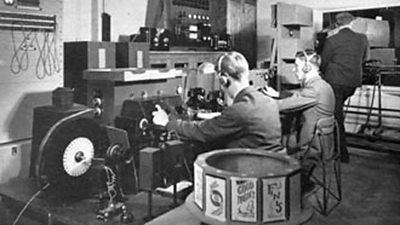
Tony Bridgewater
Tony Bridgewater worked with John Logie Baird in the days before the Βι¶ΉΤΌΕΔ had considered entering into television. -

Val Gielgud
In 1929 Val was appointed Head of Productions and was responsible for all radio drama and also contributed to the development of TV drama. -

Joanna Spicer
Known as Βι¶ΉΤΌΕΔ TV’s foremost television programme planner, it has been said that Joanna Spicer practically ran Βι¶ΉΤΌΕΔ Television single handed. -
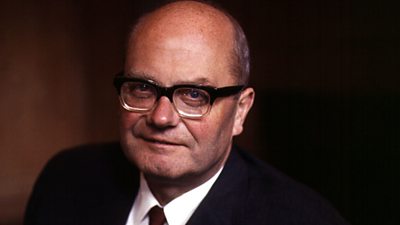
Sir Hugh Carleton Greene
Director-General of the Βι¶ΉΤΌΕΔ from 1960-1969. He is widely acknowledged as a moderniser of the Corporation. -
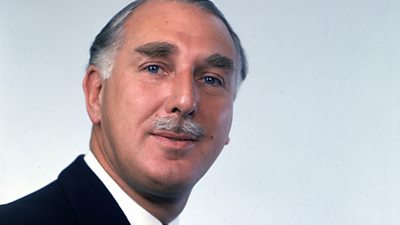
Peter Dimmock
Dimmock recalls the limited hours and means of post war television, and the strained relationship with management in Broadcasting House. -

Donald Baverstock
In his interview with Frank Gillard, recorded in October 1985, Baverstock recalls a career full of excitement, and innovation.